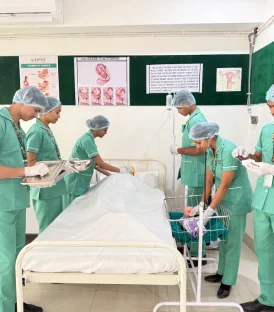December 11, 2024
Dengue fever is a mosquito-borne viral infection caused by the dengue virus, primarily transmitted by the bite of Aedes mosquitoes. This disease is common in tropical and subtropical regions around the world.
There are four distinct but related dengue viruses (DENV-1, DENV-2, DENV-3, and DENV-4), and infection with one strain does not provide immunity to the others, meaning possibility of repeat infection.
Symptoms:
- Sudden high fever
- Severe headaches
- Pain behind the eyes
- Joint and muscle pain (sometimes referred to as “break bone fever”)
- Nausea and vomiting
- Skin rash (appears a few days after the fever)
- Mild bleeding (such as nosebleeds, gum bleeding).
In some cases, dengue can progress to a more severe form, known as dengue hemorrhagic fever, which includes symptoms such as:
- Severe abdominal pain
- Persistent vomiting
- Bleeding from gums or nose
- Blood in urine or stool
- Rapid breathing
- Fatigue and restlessness
- Organ damage and failure in critical cases
Treatment:
There is no specific antiviral treatment for dengue. Management involves supportive care:
- To control dehydration because of vomiting or high fever.
- Pain relievers such as paracetamol can be used to reduce pain and fever, but aspirin and ibuprofen should be avoided as they can increase the risk of bleeding.
- Hospitalization may be necessary in severe cases to manage complications like low platelet count and internal bleeding.
Prevention:
- Elimination of mosquito breeding sites by removing standing water in containers around the home
- Using mosquito repellents, wearing long sleeves and pants
- Sleeping under mosquito nets, especially in areas with lots of mosquitoes.
- Dengue vaccines are available in some countries, but they are recommended for people who have already been infected with one strain of the virus.
The diagnosis process
- Clinical Assessment-
A healthcare provider will assess symptoms and exposure history, such as:
- Recent travel to areas with known dengue outbreaks.
- Fever lasting 2 to 7 days, accompanied by severe headache, muscle pain, joint pain, or rash
2. Laboratory Investigation
Medical laboratory investigation is crucial because dengue symptoms can be similar to those of other illnesses like the flu, malaria or Zika virus. Easily available tests include:
a) Dengue NS1 Antigen Test-
- Detects the presence of the dengue virus’s non-structural protein 1 (NS1) in the blood. During the early phase of infection (usually within the first 5 days of symptoms).
- Complete Blood Count
b) Dengue IgM and IgG Antibody Tests-
- Confirm the antibodies produced in response to the infection.
- IgM antibodies indicate a recent infection, appear after 3-5 days of fever.
- IgG antibodies suggest a past infection, can appear after a week and remain detectable for years.
c) PCR Test (Polymerase Chain Reaction)-
- Identifies the specific type of the dengue virus in the early stages of infection.
- This test is more specific and sensitive, especially in the first 1 to 7 days after symptoms begin.
The normal value of platelets (thrombocytes) in the human body typically ranges between:
• 150,000 to 450,000 platelets per microliter (mcL) of blood.
Interpretation:
• Below 150,000/mcL (Thrombocytopenia): Indicates low platelets, which can result from conditions like bone marrow disorders, infections, autoimmune diseases, or certain medications.
• Above 450,000/mcL (Thrombocytosis): Indicates high platelets, which may occur due to inflammation, infection, or bone marrow conditions.
Dengue Shock Syndrome (DSS)
Dengue Shock Syndrome occurs when severe dengue leads to dangerously low blood pressure (shock), which can be life-threatening if not treated

















